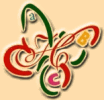[biography] - [quotes] - [publications]
I carried statues
I carried statues on the ship,
their enormous anonymous faces.
I carried statues on the ship
to the island, to take their places.
Between the ear and the nose
was an angle of ninety degrees,
for the rest their faces were blank.
I carried statues on the ship,
and in that way I sank.
(translated by Bruce Berlind)
From the notebook of Akhenaton
And there is something I yet must do,
something to unwork agony.
Must form a god
to sit on high and, seeing, he shall see.
Desire no longer does.
I need a heaven of concrete.
Mount upon my shoulder, godling.
I'll help you up. Footsore at thy seat
rest on a few cherubim.
And I will clothe you, have no fear,
night shall not see you naked;
tie suffering round your neck
like a collar of blood come forth;
that shall be your nurturing hem:
I have loved your seed and growth.
Treasure as your granite heart this gem -
what I sought was the just truth.
Enough. Pronounce: it is good to be here,
and do your higher functions,
just sit and look forever through.
I can no longer postpone you.
(translated by Hugh Maxton)
"It is not easy, you know, to insulate the days one from another, to place the date. I'll go and check if asphalt or snow is melting. This is no more than an early-morning botch of time, it will pass. Though not pass completely, for I was just examining a moment ago my five-year-old right knee and its palm-sized purple scab with the fading blue-and-iodine beach. These bruised and battered children's knees are embossed maps of discovery."
(From The Earth Remembers,
translated by Hugh Maxton)
Simile
The one who has been rowing while the storm
Approaches near, who strains with every limb
Against the trusty footboard's rigid form
And finds a sudden absence from the rim
Of the broken oar, weightless hand, and
Falling propulsion, falling
With the loosened, dropping shaft and
Whose whole body sags -
He knows what I know.
(translated by Hugh Maxton)
"The known components of a poem do not explain its
ability to radiate. ... And, getting to know poetry (art) is one road
to the knowledge of self. Poetry knows something that we, who make poetry
do not. Perhaps it is no more than the effect of the complete as opposed
to process, the effect of the ordered as opposed to the unordered, the
effect of being raised above time as opposed to being contingent; a
certain proportion, a rhythm, an inner state (Gestalt), which are, however,
able to communicate something previously unknown.
This unknown is communicated to me mainly by objects; that is why I
try to relay objects to the reader: a geyser, a branch, the fragment
of a statue, a streetcar, which may bring with them memories of war
(war: the fundamental experience of my generation), or the experience
of nature (living with nature: one of the threatened nostalgias of modern
man), perhaps the myth of an Egyptian pharaoh (the modern myth: a model
of our awareness of life). It would therefore be easy for me to say
that I'm what is called an objective lyric poet, in the sense that objects
attract me and also in the sense that the objectivity of the lyric tone
attracts me. At the same time I could also say that I'm attracted by
the intense tension which is generated by these objects at the moment
when they rise above the general feeling of endangerment, as expressions
or perhaps counterpoints of that endangerment. Because, when all's told,
I love objects. Even the threatening ones. How could I put them in my
poems otherwise? Objects have a comforting force-field." (Ágnes
Nemes Nagy, tr. by J. Sollosy)
"The underlying geology of Nemes Nagy's imaginative terrain can be said to be unstable - water threatens to burst upwards, mountain-sides crack, even "The Garden of Eden" has its volcanoes - but this instability is neither a representation of the Hungarian earth nor a metaphor for contemporary Hungarian society. It is better seen as an analogue for the epistemological condition itself; knowledge, whether it is poetic or social, metaphysical or botanical - even if it is all four of these - necessarily follows on, or precedes, the register of its causes and effects. Knowledge is a "between", a transitional state. And in the twentieth century, especially in Central Europe, tragic knowledge." (Hugh Maxton)
[biography] - [quotes] - [publications]
 |
Frankfurt '99
Non-profit Organisation,
Budapest 1054 Báthori u. 10. Fax: +(36) 1 269 20 53 E-mail: frankfurt_99.kht@mail.matav.hu |
|